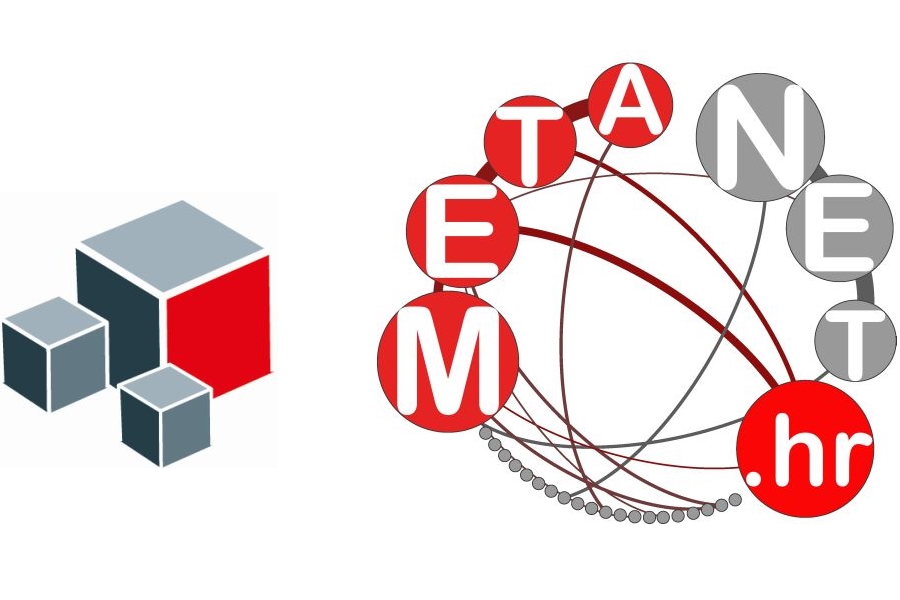Download call for participation
Event endorsed by
Association for Researching and Applying Metaphor
Instructor:
Prof. Gerard Steen
Metaphor Lab Amsterdam
Professor of Language and Communication, University of Amsterdam
Organizers:
Dr. Kristina S. Despot (Institute of Croatian Language and Linguistics)
Dr. Mateusz-Milan Stanojević (University of Zagreb)
The Institute of Croatian Language and Linguistics and the Croatian Science Foundation in collaboration with RaAM will host a 4-day training workshop on Analyzing Metaphor in Discourse.
The workshop will take place at the University of Zagreb, from January 4 till January 7 2017.
In this workshop, you will learn how to analyze metaphor in discourse by moving from language use to genre events. During these 4 days, we will concentrate on three issues in language use, and then locate them in an encompassing framework for genre events:
- Metaphor identification in language: MIPVU
(Wednesday 4 January 2017)
- Metaphor identification in thought: The five step method
(Thursday 5 January 2017)
- Metaphor identification in communication: DMIP
(Friday 6 January 2017)
- Analyzing metaphor in discourse: The effects of genre
(Saturday 7 January 2017)
In session 1, we will look at an overview of MIPVU (Steen, in press), a highly reliable and valid method for the identification of metaphor in language, and then apply the manual to a limited set of data (Steen et al., 2010, chapter 2; cf. Dorst et al., 2013; Dorst & Reijnierse, 2015).
In session 2, we will then relate linguistic metaphor identification by MIPVU to conceptual metaphor identification and analysis by means of the five-step method (Steen, 2009; Krennmayr 2013a, b), which reconstructs the related underlying conceptual analogies (limited cross-domain mappings) by means of a simple formalism.
In session 3, we will use the results of the previous two analyses to determine the communicative value of a metaphor in communication, as either a deliberate or non-deliberate cross-domain comparison between language users (Steen, 2011a; Reijnierse et al., submitted).
In session 4, we will relate our findings of metaphor in language use (language, thought, and communication) to their encompassing discourse context by modeling discourse as a matter of genre events involving the use of text in code in context (Steen, 2011b). We will then use genre properties of discourse to interpret and explain patterns of metaphor use in language, thought and communication.
The workshop offers a combination of three explicit procedures for metaphor analysis (MIPVU, 5 step method, and DMIP) that are coherent, theoretically motivated, and empirically reliable and valid. This yields a dataset that requires interpretation and explanation from the perspective of genres of discourse.
The workshop will proceed on the basis of interactive discussion with precise hands on analyses of a range of data, including conversations, news, academic texts, and fiction.
The language of analysis and instruction is English.
At the end of the workshop you will have an appreciation of the theoretical, methodological, empirical and practical issues involved in metaphor analysis in discourse.
References
Dorst, A.G, Reijnierse, W.G., and Venhuizen, G. (2013) ‘One small step for MIP towards automated metaphor identification? Formulating general rules to determine basic meanings in large-scale approaches to metaphor’, Metaphor and the Social World, 3: 77-99.
Dorst, A.G., and Reijnierse, W.G. (2015) ‘A dictionary gives definitions, not decisions: On using a dictionary to identify the basic senses of words’, Metaphor and the Social World, 5: 137–144.
Krennmayr, T. (2013a) ‘Top-down versus bottom-up approaches to the identification of metaphor in discourse’, Metaphorik.de, 24: 7-36.
Krennmayr., T. (2013b) ‘Adding transparency to the identification of cross-domain mappings in discourse’, Review of Cognitive Linguistics, 11: 163-184.
Reijnierse, W.G., Burgers, C.F., Krennmayr, T., and G.J. Steen (submitted) ‘DMIP: A method for identifying potentially deliberate metaphor in language use’.
Steen, G.J. (2009). From linguistic form to conceptual structure in five steps: analyzing metaphor in poetry. In G. Brône & J. Vandaele (Eds.), Cognitive poetics: Goals, gains and gaps (pp. 197-226). Berlin/ New York: Mouton de Gruyter.
Steen, G.J. (2011). From three dimensions to five steps: The value of deliberate metaphor. metaphorik.de 21/2011, 83-110.
Steen, G.J. (2011b). Genre between the humanities and the sciences. In M. Callies, W.R. Keller, & A. Lohöfer (Eds.), Bi-directionality in the cognitive sciences: Examining the interdisciplinary potential of cognitive approaches in linguistics and literary studies (pp. 21-42). Amsterdam/Philadelphia: John Benjamins.
Steen, G.J. (in press) ‘Identifying metaphors in language’. In Z. Demjen and E. Semino (eds.), The Routledge Handbook of Metaphor and Language. London: Routledge.
Steen, G. J., Dorst, A. G., Herrmann, J. B., Kaal, A. A., Krennmayr, T., and Pasma, T. (2010) A Method for Linguistic Metaphor Identification: From MIP to MIPVU, Amsterdam: John Benjamins.
Important dates
Application Deadline:
Monday 24 October 2016.
Notification of Acceptance:
Monday 7 November 2016.
Workshop dates:
January 4–7 2017
Registration fee
Student rate: 70 Euro
Non-student rate: 90 Euro
Dinner (optional): 30 Euro
The registration fee includes: lectures, coffee breaks and lunch for each training day.
Any other expenses (travel, accommodation) are the sole responsibility of the participants.
How to apply
To apply, please send an email to the following addresses: kristina.despot@gmail.com and mmstanoje@ffzg.hr. In the email, please state your name, title, affiliation, the project/research you are currently working on, and a short description of how you think you would benefit from this workshop (limit: 100 words).
The workshop is limited to 30 participants. Places will be allocated on a first-come first-served basis, so make sure you apply as early as possible to ensure participation.
Registration
Detailed information on how to register will be provided with the notification of acceptance.
Provisional program for each training day:
10.00–11.30 Workshop part 1
11.30–12.00 Coffee break
12.00–13.30 Workshop part 2
13.30–14.30 Lunch
Depending on interest, social-cultural program will be organized in the afternoons and/or evenings.
Questions about this workshop should be sent to one of the organizers: Kristina Despot (kristina.despot@gmail.com) or Mateusz-Milan Stanojević (mmstanoje@ffzg.hr). Questions related to practical matters should be sent to one of the workshop secretaries: Ivana Brač (ibrac@ihjj.hr) or Ivan Pandžić (ipandzic@ihjj.hr).
We look forward to welcoming you in Zagreb!
Dr. Kristina S. Despot and Dr. Mateusz-Milan Stanojević

